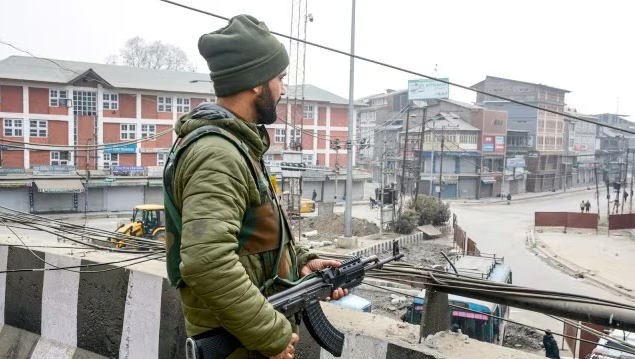As the term of panchayats in Jammu and Kashmir concluded earlier this month, concerns arise over the absence of a new election announcement. Sarpanches from various villages express apprehensions about the potential “vacuum” in local leadership that residents have grown accustomed to.
Emphasizing the urgency of holding panchayat polls, sarpanches stress that a functional system has developed where the panchayats effectively address local issues. Qayoom Mir, the former sarpanch of Pohu in South Kashmir, highlights the positive outcomes achieved during their tenure, citing successful projects such as flood control and the installation of new transformers facilitated by allocated funds.
Even though the five-year term of 4,892 elected panchayats concluded on January 9, individuals continue to visit his residence with their concerns, he noted. Emphasizing that panchayats have been instrumental in addressing grassroots issues with precision, the 50-year-old remarked that without these local bodies over the past five years, people would likely have protested against the absence of representation.
Sarpanches were allocated an annual fund of Rs 23.30 lakh, in addition to funds for centrally sponsored schemes and capital expenditure for various projects. Collaborating with different departments, they played a crucial role in prioritizing village-level initiatives and rural infrastructure.
Now, with District Development Councils (DDCs) being the only elected governance tier in Jammu and Kashmir, the absence of grassroots democracy has become more prominent.
In November of the previous year, the terms of urban local bodies, which comprised two municipal corporations, 19 municipal councils, and 57 municipal committees, came to an end.
Government sources indicate that elections for urban local bodies and panchayats are unlikely to take place before the Lok Sabha elections.
Furthermore, it has been suggested that elections for the Jammu and Kashmir Assembly do not need to coincide with the Lok Sabha polls. This assertion is based on the Supreme Court’s directive, which set a deadline of September 2024 when ruling on the constitutional validity of the J&K Reorganisation Act, 2019. The last Assembly elections in J&K occurred in 2014.
On January 10, the administration of Jammu and Kashmir appointed Block Development Officers (BDOs) as administrators to oversee the functioning of panchayat halqas (areas comprising villages) under their jurisdiction for a period of six months. During this time, officials from the Rural Development Department will manage activities related to centrally sponsored schemes until new elections are announced.
Despite this administrative transition, Ajaz Ahmad Mir, the sarpanch of Galbuk in North Kashmir, expressed concerns about the officials’ ability to understand the nuances of individual panchayats. Mir emphasized that officials typically handle larger areas with multiple villages, making it challenging for them to provide the same level of attention that elected sarpanches offer to their communities. He highlighted the significant contribution made by the panchayat in the past three years, having spent Rs 1 crore on various development projects.
According to Sheikh Suhail, sarpanch in Payer, South Kashmir, elected representatives play a crucial role in addressing the specific needs of their areas. Suhail mentioned that, during his tenure, he prioritized work on irrigation canals and ensured the optimal utilization of funds. Additionally, the panchayat successfully addressed a longstanding demand by establishing a public health center.
Suhail stressed the importance of elected representatives in bringing accountability to the system, arguing that officials, with their multiple responsibilities, may not be as effective in understanding and addressing the unique issues of each village and area.
